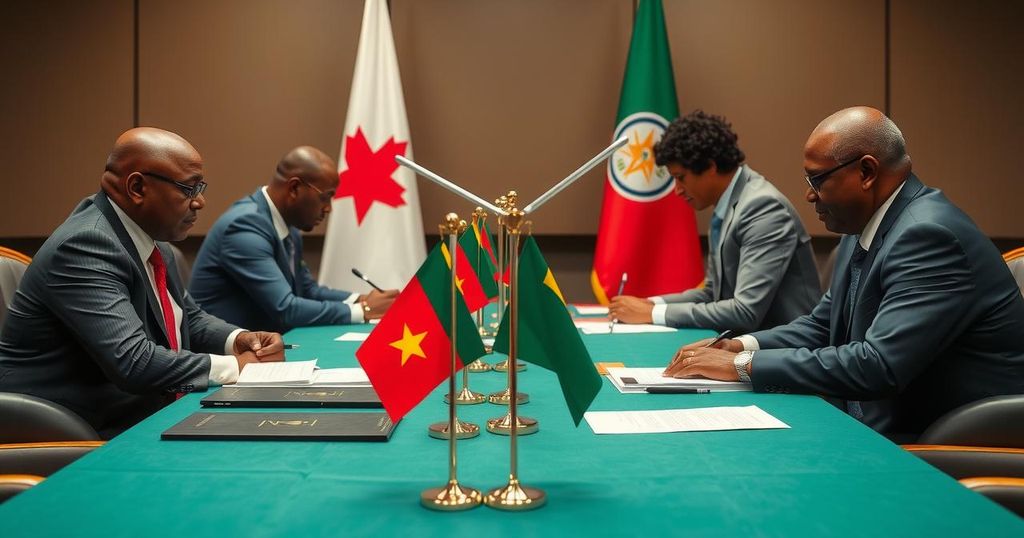Somalia and Ethiopia have agreed to restore full diplomatic relations following a visit by President Hassan Sheikh Mohamud to Addis Ababa. This decision comes after a year-long rift fueled by Ethiopia’s agreement with Somaliland. The leaders expressed a commitment to deepen trade and security cooperation, although uncertainties about maritime access and the fate of the Somaliland deal remain.
On January 11, Somalia and Ethiopia made a significant announcement regarding the restoration of full diplomatic relations, signaling a resolution to a year-long dispute that had posed a risk to stability in the Horn of Africa. This development came during Somali President Hassan Sheikh Mohamud’s visit to the Ethiopian capital, Addis Ababa, where he and Ethiopian Prime Minister Abiy Ahmed expressed a commitment to enhance bilateral relations through collaborative efforts in their respective capitals.
The tensions between the two nations largely stemmed from Ethiopia’s aspirations for access to the sea, exacerbated by a controversial agreement with the breakaway region of Somaliland, which Somalia viewed as a direct affront. Following the signing of that agreement, relations soured, leading to the expulsion of Ethiopia’s ambassador from Mogadishu and the severing of diplomatic ties. However, the situation saw a breakthrough with a peace deal facilitated by Türkiye.
During the visit, both leaders reiterated their dedication to the principles of the peace agreement and emphasized the importance of friendship and solidarity. They also explored avenues for strengthening trade and cooperation on security matters, particularly in combating extremist militant groups. Nevertheless, uncertainties remain, particularly concerning the nature of Ethiopia’s proposed sea access and the implications of its agreement with Somaliland.
The restoration of diplomatic relations between Somalia and Ethiopia follows a complex history marked by territorial disputes and competing political interests. Ethiopia, which is landlocked, has long sought access to maritime trade and has viewed Somaliland’s self-declared independence as a potential solution amidst its regional ambitions. The diplomatic rift intensified after Ethiopia’s controversial agreement with Somaliland led to heightened tensions and retaliatory diplomatic actions. The recent peace agreement brokered by Türkiye represents a shift towards conciliatory dialogue and collaborative governance in the region, aiming to address both nations’ security and economic challenges while fostering regional stability.
In conclusion, the rekindling of diplomatic ties between Somalia and Ethiopia represents a critical step toward enhancing regional stability in the Horn of Africa. The leaders’ commitment to dialogue, security cooperation, and trade signifies a constructive approach to overcoming previous grievances. However, the future of Ethiopia’s relationship with Somaliland and the specifics of maritime access remain ambiguous issues that warrant close observation as both nations strive for a peaceful coexistence and mutual benefit.
Original Source: www.hurriyetdailynews.com






